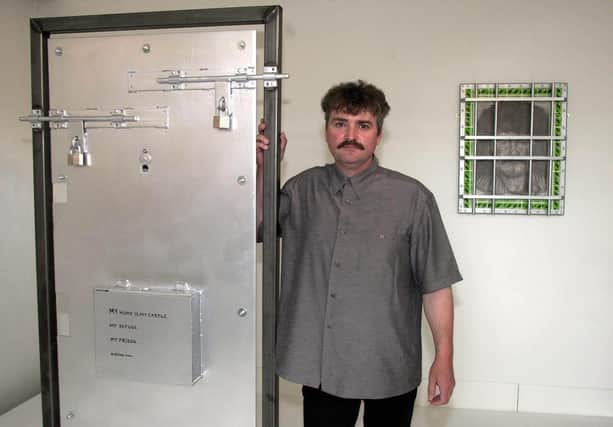Michael Stone is being ‘unfairly punished’ court is told


Lawyers for the ex-loyalist paramilitary argued that six years he spent out on licence should count towards the 30-year tariff he received for waging a sectarian murder campaign.
Strict social distancing measures were in place as the first case of its kind since the Covid-19 pandemic got underway at the Royal Courts of Justice in Belfast.
Advertisement
Hide AdAdvertisement
Hide AdStone is seeking to overturn a ruling which means he still has to serve another four years behind bars.
He was freed early under the Good Friday Agreement in 2000, but returned to prison in 2006 for attempting to kill Sinn Fein leaders Gerry Adams and Martin McGuinness at Stormont.
In January 2019 the High Court held that the Department of Justice had wrongly determined Stone is eligible for potential release on parole. According to that ruling he must remain behind bars until July 2024 at the earliest.
The finding came in a legal challenge mounted by the sister of one of 64-year-old Stone’s victims.
Advertisement
Hide AdAdvertisement
Hide AdDeborah McGuinness’s brother, Thomas McErlean, was murdered with fellow mourners John Murray and Kevin Brady in the grenade attack on an IRA funeral at Milltown Cemetery in west Belfast in March 1988.
The former UDA man was also the gunman in another three murders.
Stone’s return to prison followed his infamous assault on Parliament Buildings in 2006.
In 2013 he was told that he must serve the rest of the 30-year tariff on his life sentence. Stone’s case was then referred to Parole Commissioners on the basis that he had completed that minimum term.
Advertisement
Hide AdAdvertisement
Hide AdHowever, Ms McGuinness claimed the Department unlawfully included the six years he spent out on licence before the attack on Stormont.
The High Court backed her case that he should not be considered eligible for release until 2024 - when a full 30 years will have been served in custody.
Appealing that ruling, counsel for Stone argued that those six years should count.
David Scoffield QC said: “When someone is released on licence their sentence continues to tick by,” he submitted.
Advertisement
Hide AdAdvertisement
Hide AdThe barrister was pressed on the requirement for his client to serve a tariff aimed at ensuring retribution and deterrence.
He claimed, however, that Stone only had a “qualified liberty” during a six-year period of release when he complied with licence conditions.
“There’s nothing in the statutory scheme that says if you breach your licence you have to step back in time and re-serve that time,” Mr Scoffield submitted.
“We say that is retrospective penalisation.”
But according to Ronan Lavery QC, for Ms McGuinness, public confidence in sentencing arrangements would be undermined if Stone spent less than 30 years in jail.
Advertisement
Hide AdAdvertisement
Hide Ad“There’s a large section of the population who believe that life should mean life,” he said.
“If they are not sentenced to the rest of their lives in prison, at the very least a period which represents retribution and deterrence should be spent in custody.”
Reserving judgment in the appeal, Lord Chief Justice Sir Declan Morgan thanked the parties for observing the protocols put in place